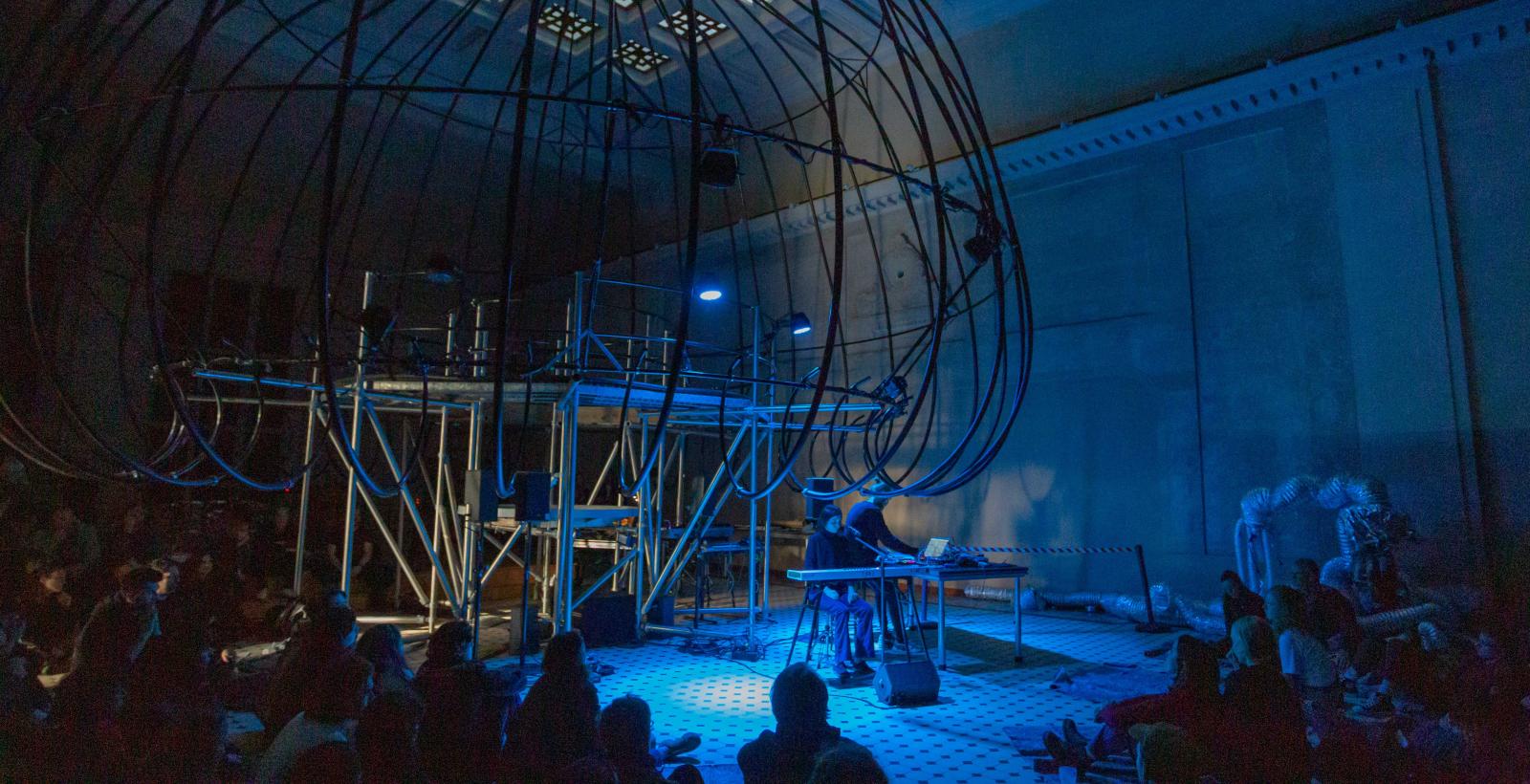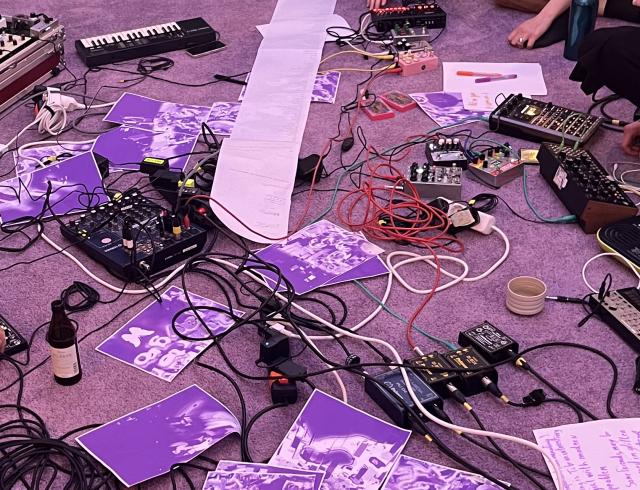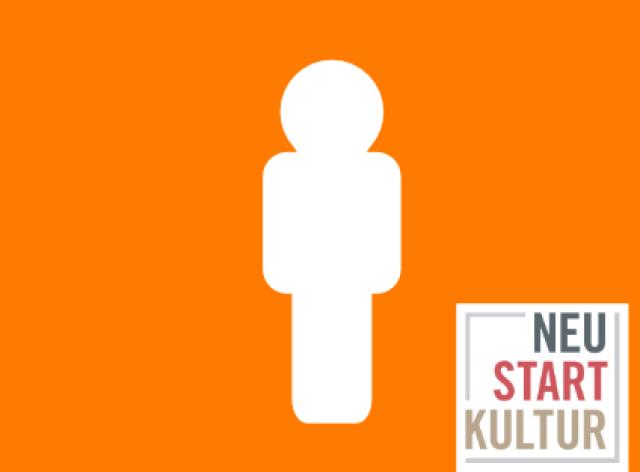
Regular funding programmes
The Musikfonds regular project funding is divided into 2 programmes:
Applications for projects with application amounts between 3,001 and max. 50,000 euros can be submitted by three fixed deadlines per year.
Eligible expenses within the scope of project funding are in particular
- Artistic fees of an appropriate amount (minimum fee per concert 300 euros)
- Other project-related personnel costs
- Event and production costs
- Travel and accommodation costs in accordance with the Federal Travel Expenses Act (BRKG)
For application amounts of 25,000 euros or more, co-financing in the form of third-party funds from other funding organisations or foundations is mandatory.
In the case of funding, proof of third-party funding must be provided by the time the contract is drawn up at the latest.
Projects that receive funding from the Federal Government Commissioner for Culture and the Media (BKM) or from an organisation permanently funded by the BKM cannot receive additional funding from the Music Fund (e.g. Federal Cultural Foundation, Capital Cultural Fund, German Music Council, Initiative Musik, Performing Arts Fund, Sociocultural Fund, etc.).
The following event formats are not eligible for funding:
- charity events
- purely audio or video productions
- Educational trips and trips abroad
- Projects that do not take place within Germany
- Applications from musicians or applicants not based in Germany
- Purely educational projects, university projects
- competitions
Acquisitions (e.g. instruments or electronic equipment) are generally not eligible for funding.
Applications must be submitted online only. There is no entitlement to funding. The decisions of the Board of Trustees will be announced approximately two months after the respective deadline.
In 2024, the small project funding programme will focus on projects in rural areas and structurally weak regions. Applications for projects planned in larger cities - or metropolitan regions - will only be funded in exceptional cases and have correspondingly low chances of receiving funding.
The fourth submission deadline for 2024 is 14.10.2024. Projects that take place in November and December can be applied for by this deadline.
For projects whose total costs do not exceed 10,000 euros, applications can be submitted with a maximum funding amount of 3,000 euros.
Depending on the planned start of the project, these applications can be submitted at short notice for five planned deadlines in 2024.
The Managing Director of the Musikfonds decides on the funding of these applications together with a representative of the Board of Trustees.
A maximum of 50 applications of 3,000 euros each can be approved per year.
Eligible expenses within the scope of project funding are in particular
- Artistic fees of an appropriate amount (minimum fee per concert 300 euros)
- Other project-related personnel costs
- Event and production costs
- Travel and accommodation costs in accordance with the Federal Travel Expenses Act (BRKG)
Projects that receive funding from the Federal Government Commissioner for Culture and the Media (BKM) or from an organisation permanently funded by the BKM cannot receive additional funding from the Music Fund (e.g. Federal Cultural Foundation, Capital Cultural Fund, German Music Council, Initiative Musik, Performing Arts Fund, Socio-Cultural Fund, etc.).
The following event formats are not eligible for funding:
- charity events
- purely audio or video productions
- Educational trips and trips abroad
- Projects that do not take place within Germany
- Applications from musicians or applicants not based in Germany
- Purely educational projects, university projects
- competitions
Acquisitions (e.g. instruments or electronic equipment) are generally not eligible for funding.
Applications must be submitted online only. There is no entitlement to funding. Decisions will be announced approximately two to three weeks after the respective deadline.
Special programmes
The STIP-4 scholarship programme is aimed at established composers in Germany who are involved in AI-based music production. The aim is to explore the potential of AI as a tool for inspiration and the creation of unknown soundscapes and to develop innovative compositional strategies in dealing with AI.
The scholarship is awarded for twelve months and also includes a residency phase of the applicant's choice. Applicants must have experience in the field of technology/new media. Applications can be submitted online from 12 June to 12 July 2024. An independent jury of experts will decide on the awarding of the scholarships.
The FEB-4 funding programme is aimed at professional independent ensembles and bands in Germany that contribute to the diversity and artistic quality of the experimental music scene. One of its aims is to support ensembles and bands in professionalising their management, developing new artistic models and communicating their musical formats. Funding is provided for long-term projects that are presented nationwide and include innovative collaborations and sustainable forms of ensemble and band work.
Professional ensembles with at least five members that have been based in Germany since January 2022 are eligible to apply. The funding amounts to up to 50,000 euros per year for a maximum of two years. Applications can be submitted online from 12 June to 12 July 2024. An independent jury will decide on the award.
Completed programmes
muh[sic]
In March, the special programme muh[sic] was announced for 2023 to support current music projects in rural regions of Germany.
In a two-stage selection process, 40 projects were chosen from 203 applications to be realised by the end of the year.
Projects with an experimental, contemporary and non-commercial objective in line with the Music Fund's funding principles were supported. The special programme muh[sic] aims to strengthen the production, presentation, communication and reception of contemporary music formats in rural regions.
Funding amounts of between 15,000 euros and a maximum of 25,000 euros per project were approved. Funding was generally conditional on a personal contribution of at least 25 per cent of the total eligible expenditure.
At the end of the muh[sic] special programme, the Musikfonds is publishing a video report and a final brochure (see sidebar) documenting the project and providing an insight into the diversity of current music production in rural areas.
NEUSTART KULTUR
As part of NEUSTART KULTUR, additional funding totalling 41 million euros was made available to the Music Fund from August 2020 to June 2023. These funds were used to increase regular project funding by approx. 4.5 million euros (approx. 270 projects) and to launch 2 new funding programmes:
The grants gave professional, freelance artists from the current music scene the opportunity to realise new work projects. These could include, for example, composition projects, the development of concepts and/or alternative or digital formats or the further development of an individual sound language.
The scholarships honoured outstanding artistic achievements that contribute to the preservation of musical diversity. They gave artists the opportunity to continue their artistic development and remain active in their profession despite severely limited professional opportunities.
The last round of the special scholarship programme (STIP-III) expired at the end of May 2023. Almost 3,300 scholarships were awarded in 3 funding rounds, with a total volume of approx. 22.5 million euros.
The scholarship programme for ensembles and bands (FEB) was aimed at professional formations from the independent experimental music scene.
The severe restrictions on concert operations in the wake of the coronavirus pandemic put ensembles and bands to the test, from which they have still not been able to fully recover.
The aim of the scholarship-type funding was to enable collective musical and creative work on new projects and thus secure the joint artistic future of the ensembles and bands.
The last round of special scholarship-like funding (FEB-III) expired at the end of April 2023. Over 900 grants were awarded in 3 funding rounds, with a total volume of approx. 12.4 million euros.





